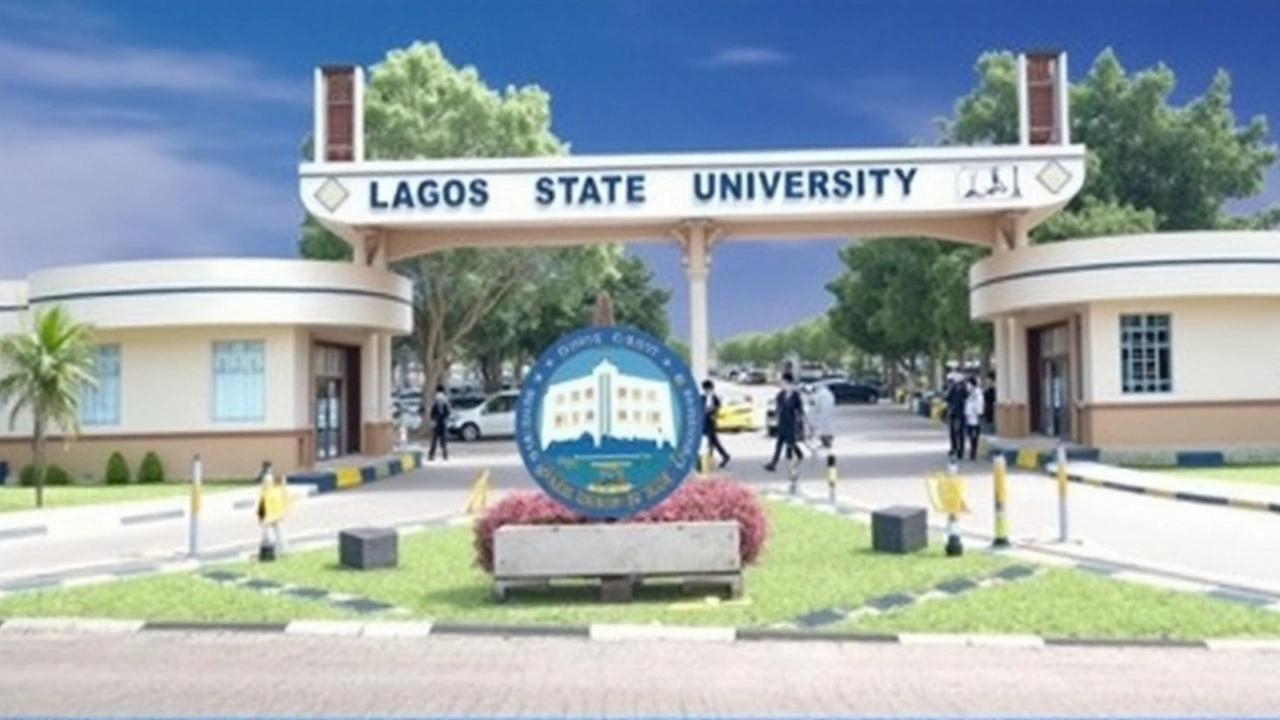Lagos State University tops national youth debate, takes home N2.5m
In a country where most citizens are under 20, a debate stage can feel like a preview of tomorrow’s politics. Lagos State University (LASU) proved that point in Abuja, winning the NYFF Youth Leadership Debate and walking away with N2.5 million after a final that capped months of competition.
The showdown took place at the Shehu Musa Yar’Adua Foundation, a venue long associated with civic dialogue and policy conversations. It marked the end of an intensive series that started in September and pulled in teams from across the country. For LASU, the win is a statement: the university’s investment in critical thinking, research, and public speaking is paying off on a national stage.
The debate is part of the Nigeria Youth Futures Fund (NYFF), a collaborative effort backed by the MacArthur Foundation, the Ford Foundation, and Luminate, and administered by LEAP Africa. The goal is simple but ambitious—give young people a credible platform to test ideas, argue policy, and build the confidence to lead.
Inside the competition and why it matters
Twenty-seven public and private tertiary institutions entered this year’s contest, reflecting how widely debate culture is growing on Nigerian campuses. The structure was tight: quarter-finals hosted across different locations nationwide, semi-finals at Ladoke Akintola University of Technology (LAUTECH) in Oyo State, and a final in Abuja that brought the best teams face to face.
Organizers framed the contest as more than a trophy chase. According to Joy Amanabo, the Senior Programmes Coordinator for the debate, the series was designed to help young advocates push for structural and policy reforms with clarity and courage. Her point was echoed by NYFF Project Director, Dr. Elisabeth Agbiti-Douglas, who underscored that dialogue—done well—can move a country forward faster than outrage alone.
That mission shaped the debates. Motions demanded evidence, not slogans, and pushed students to connect policy ideas to people’s daily lives—education funding, youth employment, governance, security, and how to make civic institutions work better. The format rewarded teamwork, fact-checking, and the ability to listen under pressure.
Key beats in this year’s journey included:
- September kickoff: training, preparation, and early qualifying rounds.
- Quarter-finals: hosted in multiple locations to widen access and reduce travel costs.
- Semi-finals at LAUTECH: high-intensity rounds that set up a tight final slate.
- Abuja finale: a packed room at the Shehu Musa Yar’Adua Foundation watched LASU edge out rivals.
Beyond the glory, the N2.5 million prize is practical. It can underwrite more training for the team, fund community projects, or seed research that feeds into future competitions. It is also validation for students who balance heavy academic loads with hours of practice, coaching, and mock rounds.
Programs like NYFF sit at the intersection of education and civic life. Nigeria’s median age is around 18, and this demographic reality makes youth-focused leadership pipelines less of a nice-to-have and more of a national necessity. Debate sharpens habits that power democracies—asking better questions, weighing trade-offs, and holding competing ideas in the same room without walking out.
LEAP Africa’s role here is notable. The organization has spent years developing leadership skills in young Nigerians, and in this project it acts as both an administrator and a coach, building consistency into the competition and tying the debate experience to real-world advocacy. The funders’ involvement signals that philanthropic capital sees civic competence as a long game, not a one-off event.
For LASU, the victory lands at a moment when universities are trying to do more with less—rising costs, tight budgets, and a job market that demands soft skills alongside technical talent. Debate teams often become hubs for exactly that: research discipline, public communication, teamwork, and the ability to defend a point without burning bridges. Those skills travel well, from policy internships to boardrooms to classrooms.
The nationwide scope also matters. Mixing public and private institutions levels the field in a healthy way. When undergraduates from different regions trade arguments and data, they also trade perspectives—what security policy means in the North might look different from what education funding means in the South. That exposure helps teams strengthen their cases and avoid one-size-fits-all solutions.
The Abuja final kept the focus on substance. Judges drawn from academia and civil society looked for strong logic, ethical framing, and clear delivery. That emphasis on quality pushes teams to move beyond viral lines and into careful argumentation. The room responded to that—applause tended to follow tight rebuttals, not dramatic soundbites.
What happens next? Organizers signal that the debate platform will continue to grow, building cohorts of students who can write policy briefs, speak convincingly to decision-makers, and organize evidence-backed campaigns. If this year’s field is any guide, next season will be even more competitive as universities invest earlier in training and scouting.
For the students on stage, the win is memory and momentum. It affirms the hours spent poring over data, drafting cases, and rehearsing cross-examinations. For their peers watching from lecture halls across the country, it is an invitation—step up, read widely, and test your ideas in public. The future has plenty of room for people who can argue well and listen even better.

eliana levi
September 9, 2025 AT 23:44Brittany Jones
September 10, 2025 AT 04:40SUBHANKAR DAS
September 11, 2025 AT 14:10Secret Lands Farm
September 12, 2025 AT 06:18Tamir Duberstein
September 14, 2025 AT 01:06John Bothman
September 14, 2025 AT 15:41Dinesh Gupta
September 14, 2025 AT 16:09Shalini Ambastha
September 15, 2025 AT 03:07Amanda Kelly
September 16, 2025 AT 09:06Jessica Herborn
September 17, 2025 AT 22:45Lakshmi Narasimham
September 19, 2025 AT 18:59Madhuri Singh
September 19, 2025 AT 21:24Amanda Dempsey
September 21, 2025 AT 18:40Ruth Ellis
September 23, 2025 AT 08:31Peter Novák
September 24, 2025 AT 21:54Siphosethu Phike Phike
September 26, 2025 AT 09:53Mitchell Ocran
September 27, 2025 AT 05:08Todd Gehrke
September 28, 2025 AT 11:14Allison Brinkley
September 29, 2025 AT 08:57Ghanshyam Kushwaha
October 1, 2025 AT 00:17